No Products in the Cart
Mohammed Aftab, holding an undergraduate degree in Mass Communication and Journalism, is proficient in content writing, editing, and researching. Read more
Last Updated March 14, 2024
Marwa Ismail is a nationally board-certified health coach who graduated from The Institute of Integrative Nutrition and holds a certificate in Functional Nutrition Coaching from MindBodyGreen. With a bachelor's degree in Psychology from UNC-Charlotte, she runs Figs and Olives Wellness, assisting clients in achieving health goals through lifestyle and nutrition changes. Marwa also works remotely for the Minneapolis Integrative Medicine Center. Read more
Neck pain is one of the most aggravating and inconvenient types of pain that a person can experience in their lifetime. This still holds true for us today, as it did for our ancestors and even their ancestors. One thing our forefathers never had, however, was the ideal pillow that would allow them to sleep without waking up with neck pain the next morning. That's right; it's the one good advantage we have over the long-running war against neck pain.
“The best pillow for neck pain” is an extremely broad statement. Neck pain comes in many forms, and each person requires a different type of pillow to relieve it. We're here to help you figure out which pillow is best for your neck pain.
Aside from that, we'll go over the various types of pillows available today, how each one helps combat neck pain, and how you can find a pillow that's right for you. We'll also discuss where you can get these pillows and how much you should pay for them. Keep reading!

Neck pain is a condition where you have a dull ache or a sharp pain in your neck muscles. It is also common for people to experience a slight tingling sensation in their fingers or a feeling of weakness in their arms.
Neck pain can arise due to a variety of reasons, such as muscle sprain, pinched nerve, cervical spondylosis, herniated cervical disc, whiplash, tumor located in the neck, etc. It can also occur due to the improper alignment of your head and spine while you are sleeping.
Based on how long they last, neck pain can be divided into two: -
Acute neck pain usually develops suddenly and is brought on by poor posture or minor injuries. Depending on the cause, the pain may be dull/achy or sharp/ agonizing.
Most people think of pain that lasts less than four weeks as acute pain. While the neck muscles are healing, pain relief options other than surgery include chiropractic treatment, massage, medication, and physical therapy.
Usually lasting three months or longer, chronic neck pain is much more persistent than acute neck pain. It might be continuous and unrelenting, or it might appear and disappear sporadically over time with a gradual progression.
Chronic neck pain may have an underlying medical condition, such as disc disease or arthritis, or it may arise for no apparent reason.
Chronic pain can occasionally be an extension of acute pain. This type of pain can also manifest as either tingling or stinging sensations, sometimes extending into the arm.

The symptoms of neck pain vary depending on the cause and the individual. Some common symptoms include: -
To rule out the existence of any underlying conditions, it's a good idea to see a doctor if your neck pain is severe, accompanied by other symptoms, or if you're unsure of what's causing it.
The common causes of neck pain include: -
Whether you get a good night's sleep or not depends on the condition of the mattress on which you sleep every night.
A sagging, old mattress can cause neck pain in the morning by throwing your spine and neck out of alignment. Check out this guide to find yourself the best mattresses for pain relief.
You should adjust your sleeping position to fit your body type and mattress. Back and side sleeping generally work fine, but stomach sleeping may put undue strain on your back and neck, throwing your body out of alignment and resulting in neck pain.
Your muscles tighten up when you're stressed. Without a supportive pillow or mattress to relieve pressure, this tension will result in a buildup of pressure, and you'll wake up with neck pain. This can even lead to chronic neck pain, so always relax before going to bed. Meditation, stretching, and exercise can be beneficial.
Neck pain may also be caused by injuries. Consult a doctor, then rest. The best course of action frequently includes physical therapy, medication, and massage.
When working or just relaxing, bending your head downward for an extended period of time can cause neck pain. Maintain an upright, neutral posture for your back and neck at all times.
Your head, neck, and shoulders are supported by the pillow when you’re asleep. The wrong kind of pillow, such as one with an inappropriate loft, design, or material, can cause spinal misalignment and, ultimately, neck pain.

Sleep quality can be significantly impacted by neck pain.
If you experience neck pain at night, you will be unable to get a good night’s sleep as the pain will keep you awake. Your daily activities will be affected because of this, including your work and social life. You will also feel less motivated and have less energy.
Aside from that, neck pain can cause irritation in the upper parts of your body, making you feel agitated and unable to relax. It can also lead to headaches and migraines.
A pillow that doesn't support your neck properly can indeed result in neck pain.
When you are asleep, you won't be able to control your head to keep it in a straight position. In this situation, a pillow supports your head and keeps it from being forced into an uncomfortable position. Always pick a pillow that accommodates your body type and sleeping position.
Using a pillow that is inappropriate for your sleeping position will result in significant stress and pressure being placed on your neck and head, which will inevitably result in neck pain. Even studies have corroborated this fact, which is why choosing the right pillow is crucial.
You must take into account two factors when selecting a pillow to relieve neck pain. They are: -
Consider your sleeping position first, as it is very important for preventing or treating neck pain. There is a preferred height and firmness that should be maintained in each sleeping position to ensure proper head, neck, and spinal alignment.
If you sleep on your back, choose a soft or medium-firm pillow with a low or mid-loft of 3-5 inches. Back sleepers are advised to use this particular type of pillow because it helps prevent excessive neck twisting or bending. It will assist in preserving your neck's natural curve while you sleep and keep your spine straight.
Avoid using pillows with excessive loft, as they will cause your chin to droop toward your chest. Furthermore, stay away from pillows that are excessively firm or soft.
If you sleep on your side, choose a medium-firm or firm pillow that keeps your head in alignment with your spine while also contouring your sides and shoulders. The loft will be determined by your shoulders. Wider shoulders require a taller pillow.
Refrain from using pillows with unusually low or high lofts. Your cervical spine may be under stress as a result of your head tilting towards your shoulders. Avoid using pillows that are too firm as well, as these strain your shoulders and sides under additional pressure. Likewise, too-soft pillows risk collapsing and leading to misalignment.
If you sleep on your stomach, which only a few people tend to do, then a soft pillow with a low loft of 3 inches or below is most recommended.
Stomach sleeping is something we don't recommend you make a habit of, as it could increase neck pain. If you're adamant about this posture, then a soft and low pillow is best, as it doesn't crane your neck backward.
Avoid medium-firm or firm pillows because they don't provide much contouring but may overdo the support, causing your head to tilt back and stay in that position until morning. For the same reasons, a mid or high loft should also be avoided.
Your body type and your sleeping position are related in a variety of ways. For instance, the loft of the pillow would need to be increased above average if you have broad shoulders and sleep on your side. This would ensure neutral head and spine alignment. Other physical characteristics that influence your choice of the appropriate pillow include your height and weight.
If you are a heavy person with a large head, the firmness, loft, and size of the pillow must be increased to prevent sinkage and misalignment. If you're a thin person with a small head, you'll want to keep these customizations to a minimum.
Temperature is another factor that must be considered. To avoid overheating while sleeping, heavier people may need a cooling pillow made of materials like latex over memory foam.
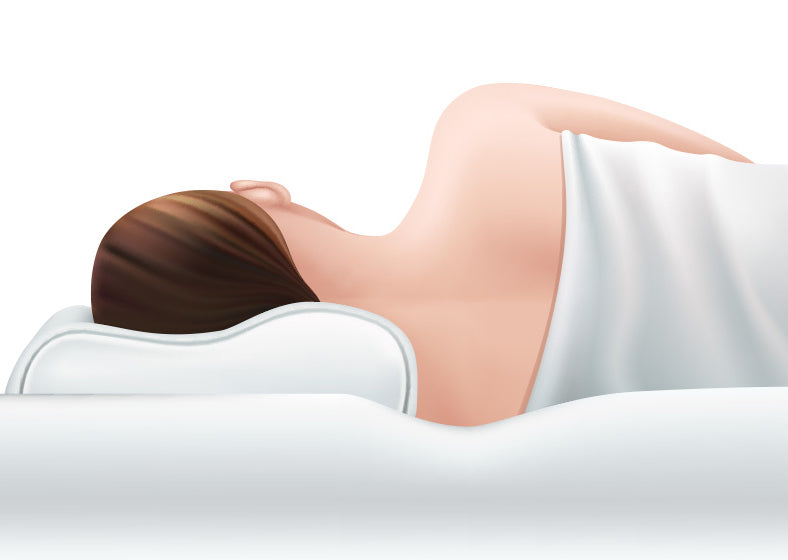
You must determine what pillow is best for your particular neck pain based on the two factors we've mentioned above, namely, sleeping position and body type. Pillows work best for acute neck pain. This type of neck pain lasts for a shorter period of time and is frequently caused by something whose effects can be reversed.
Chronic neck pain necessitates medical attention because it lasts for longer periods of time and is frequently caused by underlying conditions whose effects may be irreversible. Pillows can help ease chronic pain, but they cannot completely eliminate it.
Now, given the information we have gathered, if you were to ask us what the best pillow is for neck pain, we would respond -
The degree of support and contour offered by a mid-loft natural latex pillow with medium firmness is consistent throughout. Too soft a pillow, and it'll give you no support; too firm a pillow, and it'll be too rigid to be suitable for your neck and head. The medium firmness and loft make it suitable for almost all sleeping positions, including combination sleepers.
Natural latex is a long-lasting pillow material that strikes a balance between comfort and support. It will keep your head aligned with your spine, keep you cool, and prevent dust mites and other allergens from settling on the pillow surface due to its hypoallergenic nature. Latex is also an eco-friendly and natural material, making it healthy for both you and the environment.
However, going for natural latex is merely our opinion regarding the "best pillow for neck pain" discussion. Your opinion on the subject may sometimes be different than ours, and that’s fine. We encourage personal preference as much as possible.
There are many different types of pillows that can help with neck pain, so there is no one type that is superior to the others. The pillow that works best for you is the one that accommodates your sleeping habits, sleeping position, and sleeping environment (including the mattress and sheets).
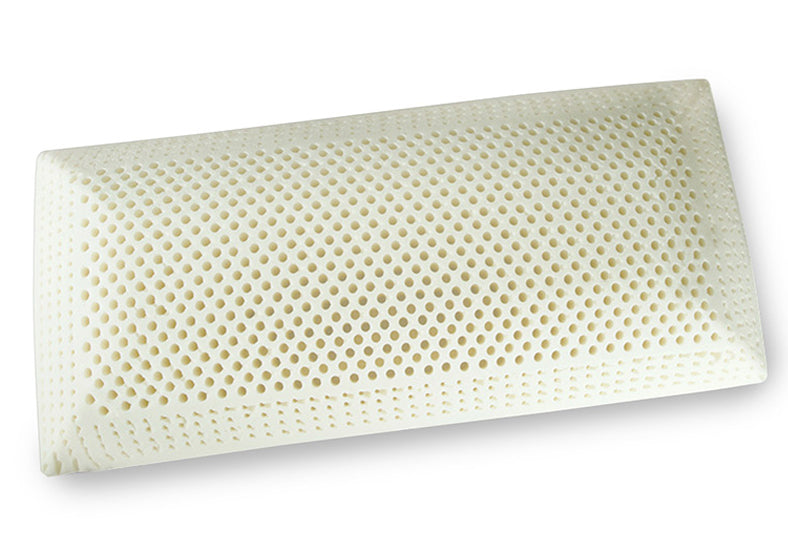
Before we get into the various types of pillows and their applications, let's talk about how you can reduce pain by properly positioning your pillow.
First and foremost, make an effort to align your head and spine. This will enable the weight of your head to be distributed more evenly, and it will reduce the strain on your neck.
Next, check to ensure the pillow isn't too high or low. If you position it too high, it will only support your head and leave your neck exposed, which will put a strain on your neck. If you set it too low, bringing it under the shoulder, your drooping head won't have any support.
Always place your pillow beneath your head and neck, where it will support both of your upper body regions and keep the rest of your body neutrally aligned. Any other way of bending the neck can result in little relief from neck pain. This is also the reason why stomach sleeping isn't recommended for people with neck pain, as you have to bend your head and neck to either side.
Finally, you can try to place a pillow between your legs. This will help to distribute the weight of your legs (which also puts pressure on your neck) and reduce the amount of stress placed on your neck.
It's important to know that each pillow has pros and cons for people suffering from neck pain. Although you shouldn't rely solely on these facts when selecting a pillow, it's still good to be aware of them.
The material is one of the most important considerations when selecting a pillow for neck pain relief. These days, pillows can be made from a wide range of materials.
You can find materials like latex, memory foam, feathers, down, buckwheat, etc., by simply searching "pillow materials" on the internet. Each of these materials has a different level of firmness, cooling, pressure relief, and support to offer.
Higher-quality pillow materials will offer an enhanced sense of all the important qualities, in addition to lasting longer and being more resilient overall, lowering the likelihood of sinkage over time. On the other hand, inferior materials will unquestionably fall short in many of these areas, and while they might be adequate in the short run, they won't be of any use for long-term neck pain relief.
It's not necessary for pillows to have the typical shape that you see in movies and cartoons. They can have a wide range of designs and shapes. Cervical pillows are a good example of this. Almost every sleeping position is accommodated by their distinctively convoluted design, which holds the neck and head up precisely and comfortably.
Today's market is flooded with ergonomic pillows. They're designed to adapt well to the neck and head. Your personal taste determines the style of your pillow. It influences both the pillow's ability to conform to your upper body and how supportive it will be.
Standard pillows have standard characteristics, while specialty pillows with distinctive designs have unique characteristics. Just be certain that the design you select is compatible with how you prefer to sleep.
We've talked about the pillow's construction and material and how each affects your ability to relieve neck pain. But what other elements should you consider when looking for the ideal pillow? That's what we're going to talk about in this section.
The first one on our list is pillow size.
How much you move during the night is a major factor in determining your ideal pillow size. A standard pillow size should work well for you if you don't lean toward combination sleeping and prefer just one sleep position. For combination sleepers, a queen or king-size pillow is recommended because it will keep you from falling off the pillow as you move around.
Pillow height is referred to as loft. It establishes the height at which your head will be held in relation to your neck and spine.
The bigger your head and the broader your shoulders, the higher the loft on your pillow must be.
Make sure your head is not sagging or bending when selecting the loft. Consider your bed's tendency to sink as well, and adjust the loft as necessary to obtain proper posture alignment. If you're unsure of this aspect, an adjustable pillow, like buckwheat, is an option.
The firmness of the pillow will determine how hard or soft it feels to you.
Firmer pillows are advised for those who tend to sleep on their sides. Softer pillows sink when your head exceeds a certain weight and size. A medium-firm pillow is typically preferred for the average sleeper because it balances comfort and support.
A pillow's contouring determines how well it can mold to the shape of your head.
Contouring pillows can significantly relieve upper body pressure while effectively relieving neck pain. Pillows made of latex and memory foam are well known for their contouring.
Your decision to buy a pillow should undoubtedly take into account the pillow's price.
Quality pillows are typically more expensive, costing anywhere from $100 to $300, but they last longer and have all the features you need to improve neck support and lessen neck pain. Conversely, a low-quality pillow is typically more affordable, costing between $25 and $75.
Next comes durability. Your pillow's material, design, and style can all affect how long it will last. If all three are of the highest caliber, you can rest easy knowing that your pillow will stay in good health for at least three years.
A sturdy pillow has resilience, which keeps it from sinking and throwing your posture out of alignment. Increased lifespan is frequently provided by materials like memory foam, latex, and buckwheat. Taking care of your pillow also increases its lifespan.
Almost everyone dislikes sleeping in hot temperatures, especially in already humid climates or areas. Your pillow makes direct contact with your head, which, if kept cool, will provide you with a comfortable night's sleep. Therefore, it's always recommended to buy pillows made of cooling materials.
There are many different materials that you can find when doing research on pillows. Different materials have unique qualities that you may or may not like. This section will concentrate on various pillow types and help you identify which one alleviates neck pain most effectively.
Two varieties of latex exist. Natural latex comes from rubber trees, while synthetic or blended latex is created using chemicals. Natural latex is superior to synthetic latex because it is more bouncy, responsive, cooling, hypoallergenic, contouring, resilient, and supportive. This material meets all the requirements for a good neck pain relief pillow, so we highly recommend it.
Choose natural latex over synthetic latex to get the best neck pain relief.
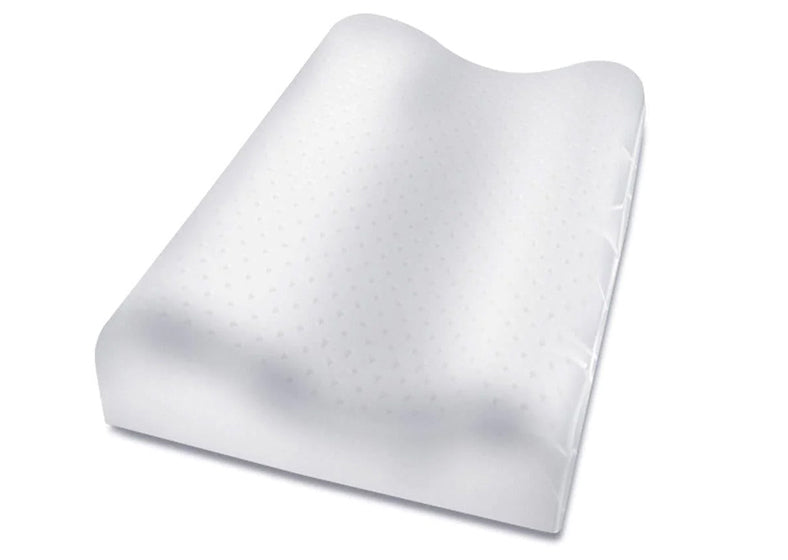
Memory foam is a synthetic material created by making polyurethane elastic and viscous. They're well-known for their contouring and pressure relief, making them an excellent choice for neck pain relief.
Memory foam pillows, whether solid or shredded, are hypoallergenic, inexpensive, and easy to find. The contouring process, however, traps body heat. As a result, it gets hotter when you sleep on it. If you want a cool sleep, choose a gel-infused memory foam pillow.
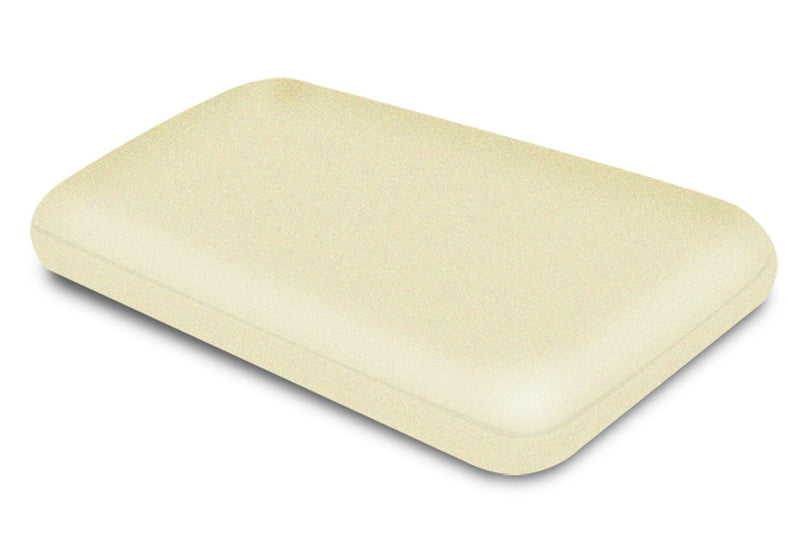
Polyurethane, a type of plastic fiber, is used to manufacture polyfoam. Despite being the source of memory foam, polyfoam is not as contouring. It is springier and more receptive, though. Pillows made of polyfoam are typically lightweight and inexpensive. The downside is that they can permanently indent over time, so you'll need to replace them more frequently than other types of pillows. However, it is important to note that polyfoam pillows are not recommended for neck pain.
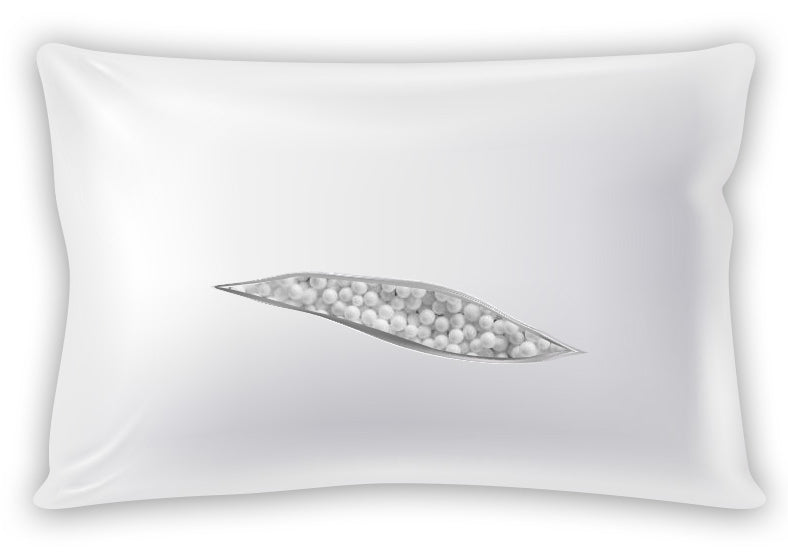
We highly suggest buckwheat pillows to you for neck pain relief.
Buckwheat hulls are used as filling in buckwheat pillows. These hulls are robust, hypoallergenic, and natural. Buckwheat pillows are also breathable, and the firmness of the pillows can be adjusted by adding or removing hulls. The naturally interlocking and shape-retaining properties of buckwheat hulls make them an excellent choice for head and neck support.
Buckwheat pillows make noise when you move, so if you're a light sleeper, be aware of this.
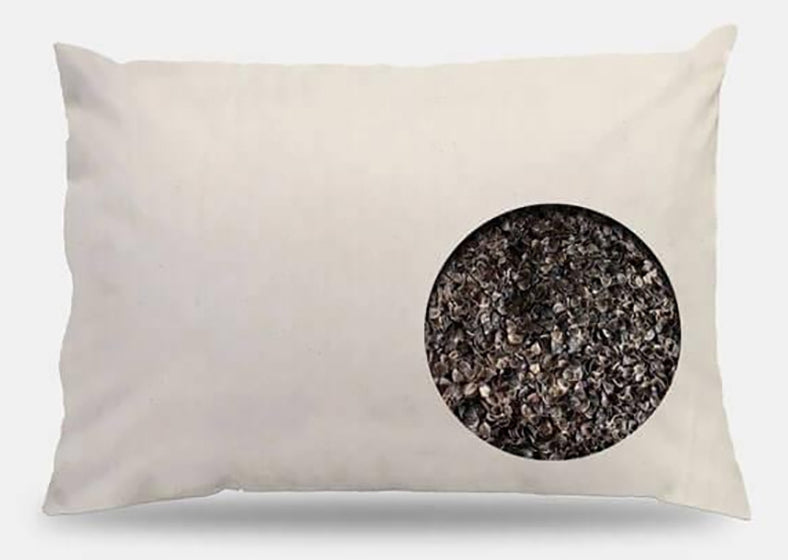
Feather pillows, as you might expect, are made of feathers. The fill used in a feather pillow is typically descended from goose or duck feathers. Their firmness can be altered by adding or subtracting fill.
High-quality feather pillows are soft and conforming. As the feathers compress, these pillows lose their loft over time. Moreover, feathers may move around as a result of the head's weight, which will affect how well they support the head. It is, therefore, not recommended for neck pain.
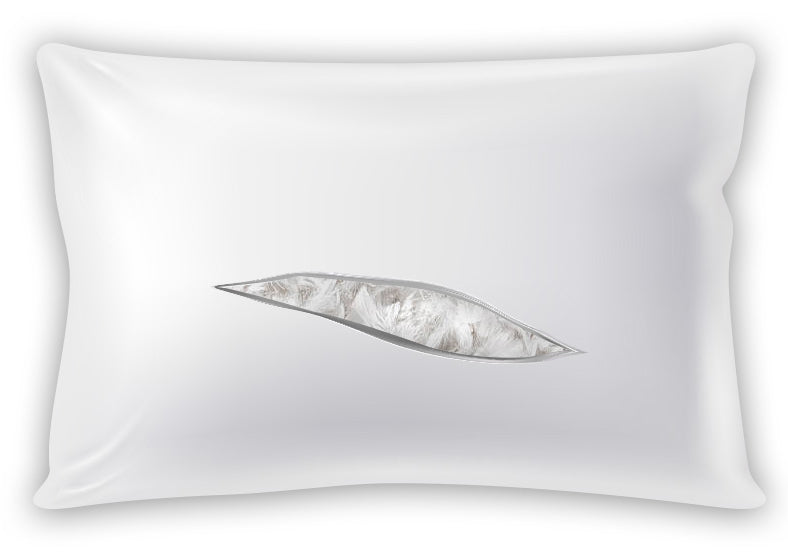
A down pillow is made from a soft grouping of fibers, most likely derived from geese, ducks, or swans, that are located near the bird's chest and closest to its skin. They are of much higher quality than the feathers used in feather pillows.
Since down pillows are expensive and can trigger allergies in some people, many sleepers opt for down alternative pillows, which are made of polyester fibers. Down pillows can be shaped to suit your preferences. Due to their soft nature, both down and down alternative pillows easily lose their shape, so they aren't recommended to treat neck pain.
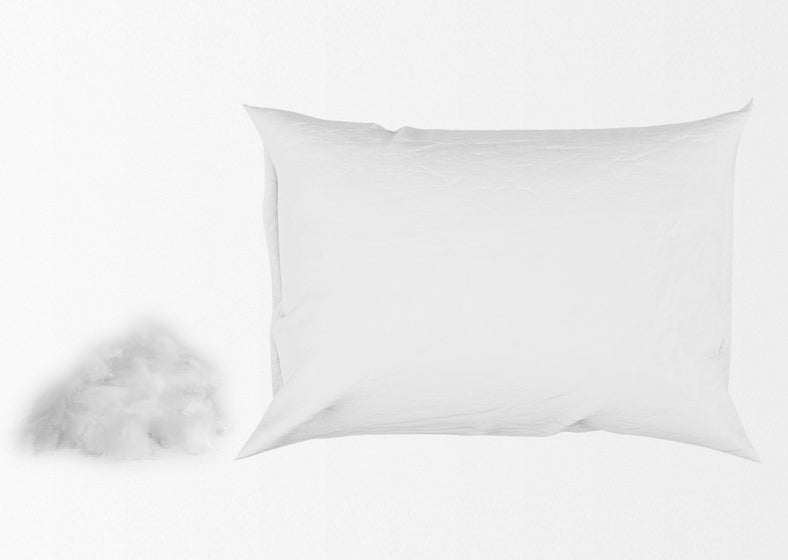
Fabric made from bamboo is known for its excellent breathability and is a relatively new addition to the pillow material lineup. Bamboo pillows offer a temperature-neutral sleeping surface for your head and neck when filled with shredded memory foam or bamboo fiber, which encourages greater airflow. However, this type of pillow might not offer the appropriate level of support and is therefore not the best pillow for neck pain relief.
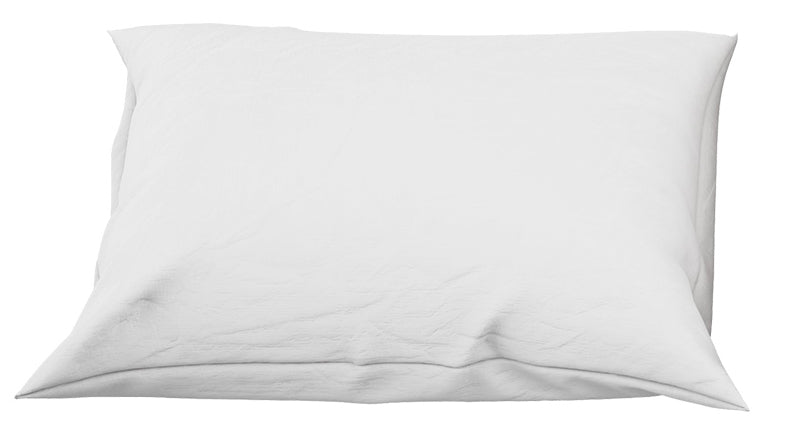
Cotton pillows were once widely used. They were widely available and reasonably priced in stores. Cotton is a soft, fluffy material, making it a comfortable place to rest your head. Cotton pillows also let you sleep cooler than the majority of other pillow types because of their breathability.
Nevertheless, cotton pillows have declined in popularity since latex, memory foam, and buckwheat were introduced. The lack of support provided by cotton pillows makes them unsuitable for treating neck pain.
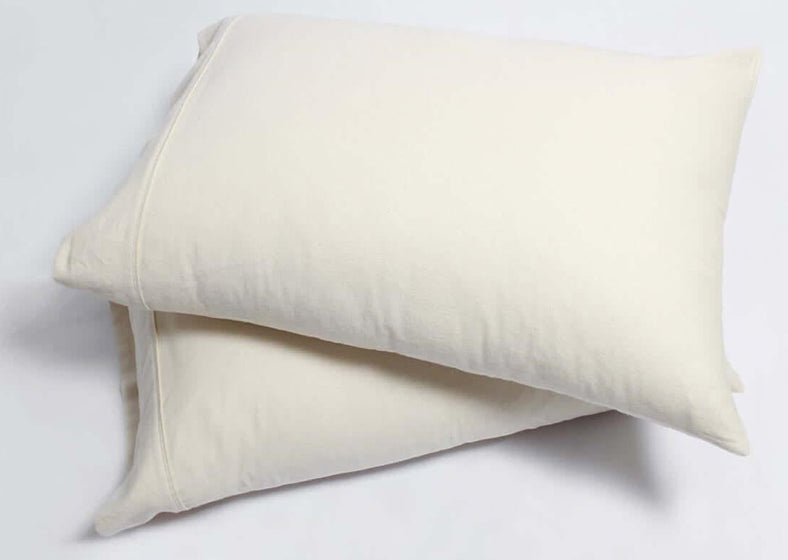
Pillows filled with polyester fiberfill, also known as poly-fill, are a popular low-cost option. The downside is that, due to their cheaper material, poly-fill pillows have the propensity to absorb heat and form lumps very quickly. This is not recommended for neck pain.
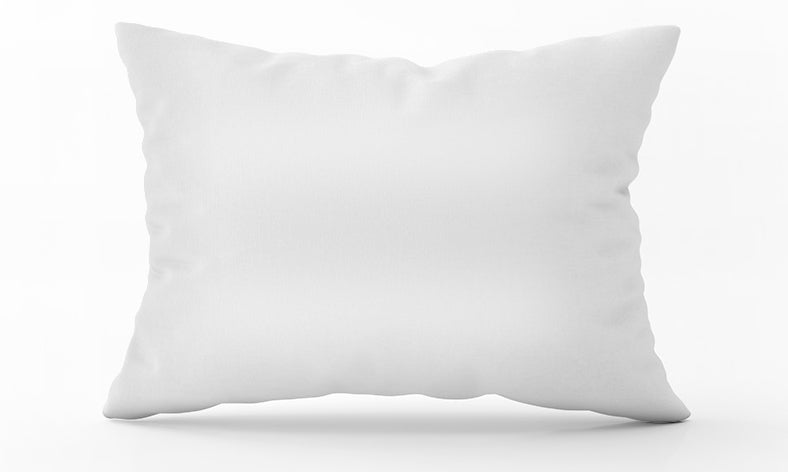
Since you've already read the title, let's get right to the point and discuss which types of pillows to stay away from if you have neck pain. We advise you to avoid polyfoam, feathers, down, down alternatives, bamboo, cotton, and polyester.
There is a lack of either support or pressure relief in many of these pillow materials. Moreover, these materials aren't as durable or breathable as buckwheat or natural latex, forcing you to replace them with a new pillow sooner rather than later.
Specialty pillows, or orthopedic pillows, are created for people who have particular sleeping needs.
Some of the well-known specialty pillows include body pillows, neck pillows, wedge pillows, and cervical/contour pillows. A cervical pillow is the suggested specialty pillow if you have neck pain or a stiff neck.
The curved shape of cervical pillows allows them to conform to the head, neck, and shoulder of both side and back sleepers. In addition to relieving neck and shoulder pain, it may also aid in breathing to reduce snoring and sleep apnea.
Side sleepers can use a cervical pillow or a side sleeper pillow (often shaped like a cube or cuboid) to alleviate pain while sleeping on their sides. Both cervical pillows and regular pillows are suitable for back sleepers. Pillows for stomach sleepers should be thin and standard, as cervical pillows may be uncomfortable.

While some would immediately assume that your best bet would be to go out and purchase something from a nearby store, others would believe that the internet would be the better option. Well, both of these options have their perks and drawbacks, and we'll enlighten you on the best choice for you.
Firstly, we'll begin with brick-and-mortar stores. These are great, and more often than not, they'll have a wide selection of pillows in different shapes, sizes, and materials. However, they typically aren't very cheap. In fact, you could easily wind up spending a few hundred dollars on some of their higher-end pillows.
On top of this, you might not know how beneficial each pillow is for your neck pain. You may find yourself settling for a pillow that doesn't help with your pain because you're unaware of any better pillow options. This is where online shopping comes in. You get to see reviews and ratings and have access to a wide variety of pillows at more affordable prices.
Start with physical stores; maybe try out a few pillows first. Then go online, compare them with the pillows you saw in-store, and make an informed decision based on your preferences.
As we said, the price of a pillow can vary depending on where you buy it. However, there's no general rule for how much you should pay for a pillow.
Depending on the type of pillow, you should expect to pay between $40 and $1000. The average price for a quality pillow in today's market is under $250.
Always remember that pillows are an investment. You'll be sleeping on it for, at the very least, two years. You'll want to make sure that you get your money's worth!
The best pillows for neck pain sure do work, but there are a few other things you can do to alleviate this condition.
Since materials, patterns, and shapes can be easily modified, many different types of pillows exist. Pillows that have a memory foam or natural latex core with a mid-loft and medium firmness are the types of pillows we suggest for the best neck support and pain relief.
Neck pain can also be effectively relieved by using specialty pillows, such as cervical pillows.
This would depend on how you choose to sleep and how heavy your head is.
A medium-firm pillow is often the best choice for the average side and back sleeper. For stomach sleepers, a soft pillow is ideal.
Side sleepers can also opt for a firmer pillow, as support is vital in this posture, but just make sure that the pillow doesn't put too much pressure on your shoulders and sides to the point where you get uncomfortable.
Furthermore, the heavier your head is, the firmer your pillow must be to avoid sinking.
Position-wise, we would suggest side sleeping and back sleeping. Try to avoid stomach sleeping as much as you can, as it bends the neck, restricting the effective healing of pain. When side sleeping, you can place a pillow between your legs to further reduce the pressure on your neck.
Related blog posts:
1. Best Mattress Topper For Back Pain Relief
3. How To Care For Your Latex Mattress?
4. Best Mattress Topper For Couples
5. Why Do You Need A Mattress Protector For Your latex Mattress?
Disclaimer: What is said in this article has been referenced from multiple sources and is intended only for educational and informational purposes. Please note that no content in this article is a substitute for professional advice from a qualified doctor or healthcare provider. Always consult an experienced doctor with any concerns you may have regarding a health condition or treatment, and never disregard any medical suggestions or delay in seeking treatment because of something you read here.
Notify me when available
We will send you a notification as soon as this product is available again.
We don't share your email with anybody


